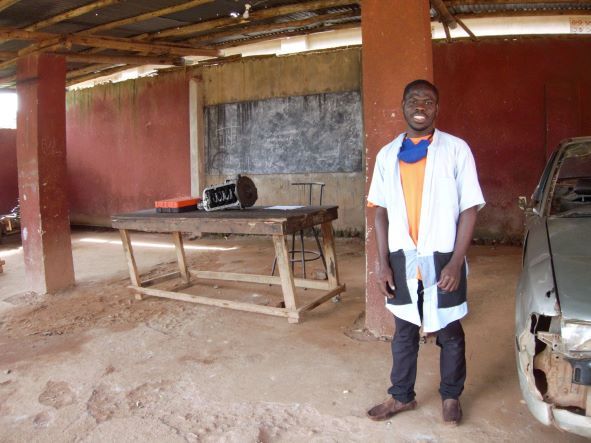With over half its people under the age of 18, Uganda has one of the youngest populations in the world. According to UNICEF, the number of children, adolescents, and youth is expected to increase to over 75 million by 2080. Harnessing the potential, drive, and energy of these young generations presents an incredible opportunity. It also promises to strain the education system and intensify the need for quality jobs. How can we help ensure that young people have access to the resources and the financial and entrepreneurial skills they need to thrive?
In my role as Head of the Financial Inclusion Initiative at Credit Suisse, I recently traveled to Uganda to see first-hand the impact of Opportunity International’s education work. The program, which has long helped parents access the resources necessary to send their children to school, also helps affordable private schools provide quality education to students. Since Credit Suisse first started supporting this program in 2014, we’ve seen it scale dramatically to now serve 10.2 million children through 118 financial institution partners. Building on this success and our shared values of innovation and entrepreneurship, we were keen to partner with the Opportunity team on the next frontier, so we expanded our support to include market research and the pilot of Technical and Vocational Education and Training (TVET) loan products for students and recent graduates. These services empower young people with practical, applicable skills and experience so they’re able to seize work opportunities. This trip offered a chance to reflect on the progress that’s been made and the role of financial services and products in helping to improve access to education and employment.
TVET students and recent graduates face a challenging job market and economic hurdles. Developing and providing innovative and financially inclusive solutions is one way in which we can help lower these barriers to entry. While visiting the Buloba Business Technical & Vocational Institute, I sat down with principal Agnes Muhindo. Her commitment to her students was palpable and she shared how she coaches them to identify their passion—what they want to do versus what they think they should do. In doing so she’s been able to inspire countless young people to pursue their career ambitions. Young people like Jamal who is studying to become an auto mechanic.

Yet the challenges students face upon graduation have often left her struggling to provide guidance when financial hurdles have kept some from opening their own businesses or purchasing the supplies or equipment they needed in order to be employed. “The TVET loans have huge potential, especially for our graduates,” she said. “I’m excited to finally be able to offer them a solution and to help open the door to financial resources that can empower them to pursue their dreams.”
In the decade-plus that we’ve partnered with Opportunity, we’ve been committed to supporting innovation—whether of delivery channels or products. Here too, when it comes to TVET, we see the potential to build on the success of the School Improvement and School Fee Loans that have long been part of the EduFinance portfolio. By investing risk-tolerant grant capital into the thoughtful design of sustainable, scalable products tailored to the needs of students and graduates, we hope to support the next generation of entrepreneurs and job creators in Uganda and beyond. And we’ve been encouraged by what we’ve seen—already, the interest and results of the pilot in Uganda, have led to its expansion to countries including India.


